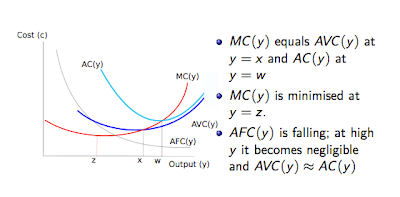 |
| List of just some of the many things that need doing. |
For my remaining audience: as you may already know, I am pursuing a three-year course of study here at Oxford known as PPE, which stands for Philosophy, Politics, and Economics. Given that these three subjects cover an enormous breadth of knowledge, students take Introduction to Philosophy, Introduction to Politics, and Introduction to Economics in their first year and then typically drop one of the three branches in order to specialize in the remaining two. In the following two years, PPEists then select eight courses - some mandatory "core papers" and others optional - which they will then be tested on at the end of their third year in one insane week of exams that will form the sole official basis for their degree. For more information, those intrigued by the minutia of academic curriculum or just interested in PPE in general can find more information here.
Focusing in on my study of PPE, at Jesus College, we study two of the three branches each term, starting with Philosophy and Economics - or more specifically Moral Philosophy, Introduction to Logic, and Introduction to Microeconomics. However, given that the colleges' schedules for study differ completely from one another, the University offers the lectures for all aspects of all three branches at the same time, meaning that for any given week we have lectures for eight different subjects within those three fields. Aside from lectures, we also have weekly classes in logic:
 |
| This is beginning to make sense. |
 |
| These are cost curves. Even our lecturer admitted that they are tiresome and tedious. |
 |
| PPEists quickly learn that this statement makes a lot of philosophers quite upset. |
In order to explain what a tutorial exactly is, I'll detail the example of my biweekly moral philosophy tutorial. For the two weeks beforehand, I go about collecting the many books and articles on the reading list for next tutorial from Oxford's numerous libraries and surprisingly extensive online journal and e-book collection. Then, I attempt to read as much as possible and somehow refine all of this information into an essay in response to some given, open-ended question such as, "Does Mill succeed in proving utilitarianism?" or "What kind of Utilitarian is Mill? Is there a better version of Utilitarianism?" All very exciting stuff without a doubt.
Both my tutorial partner and I submit our essays the day before, and one of us presents our essay the next day, usually just by reading it aloud and taking questions. After the presentation, the professor - Dr. Levy - then leads a discussion about some of the topics present in the essay pertinent to the question at hand. As I've mentioned to many, the tutorial system was one of the main reasons I decided to attend Oxford over an American university, and I can already safely say that I very much prefer this method of teaching.
Well, that about wraps up my description of my studies in PPE thus far. In other news: last Thursday I gave a brief speech during a debate at the Oxford Union, this past weekend I acted as a judge for the Oxford Intervarsity Debating Competition, and the Library Committee and Role-Playing Game Society continue to be as exciting as ever. Doubtless these events and activities shall feature more in future posts. But until then: I'm gonna get some much-needed sleep in preparation for another day of tough, yet greatly satisfying work tomorrow.
Very interesting entry. Looking forward to some philosphical discussions. Keep up the good work.
ReplyDeleteSounds to me like you found your "fit". Have at it, and good luck!
ReplyDeleteMr Hutch